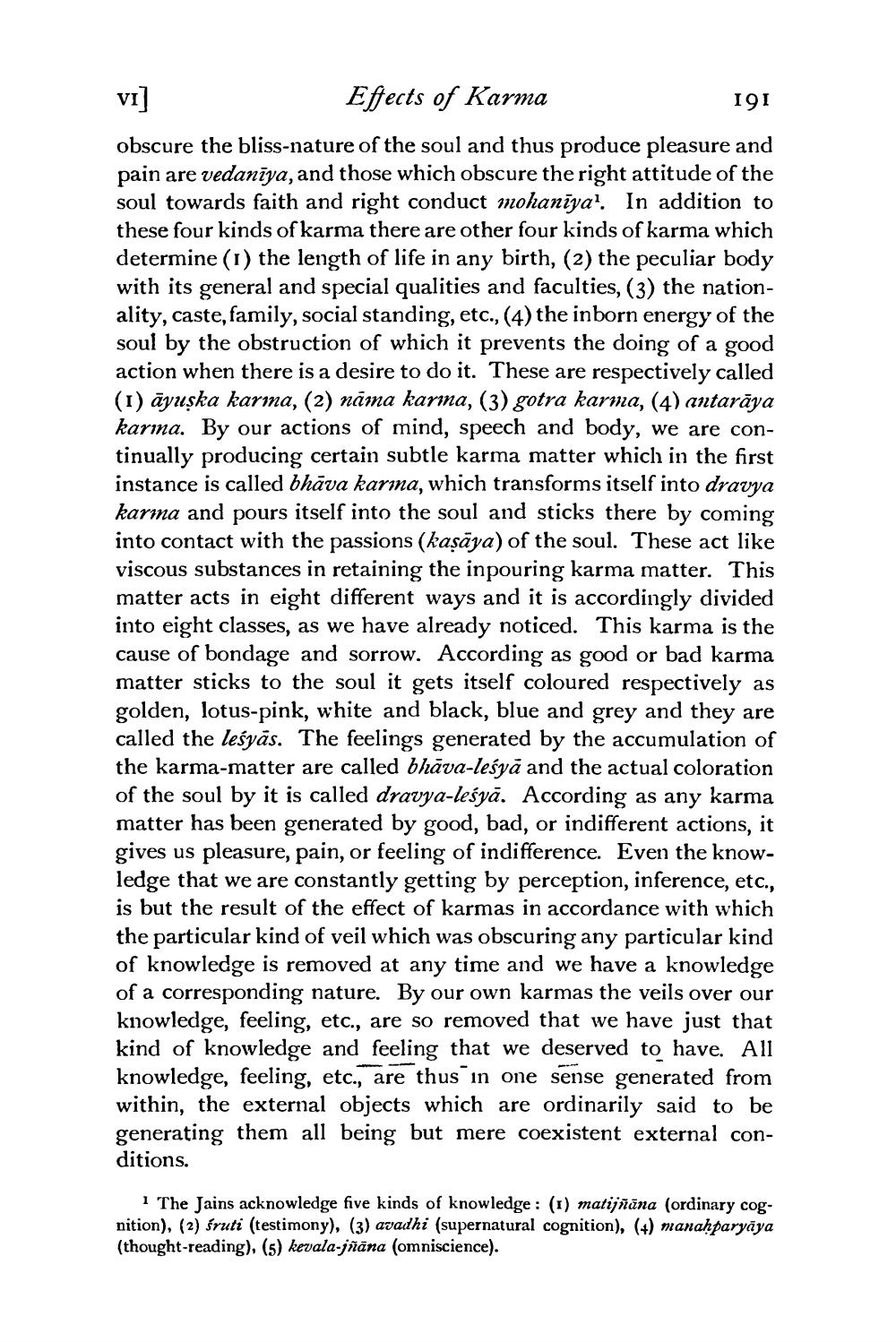________________
vi]
Effects of Karma
191
obscure the bliss-nature of the soul and thus produce pleasure and pain are vedaniya, and those which obscure the right attitude of the soul towards faith and right conduct mohaniya'. In addition to these four kinds of karma there are other four kinds of karma which determine (1) the length of life in any birth, (2) the peculiar body with its general and special qualities and faculties, (3) the nationality, caste, family, social standing, etc., (4) the inborn energy of the soul by the obstruction of which it prevents the doing of a good action when there is a desire to do it. These are respectively called (1) ayuşka karma, (2) nāma karma, (3) gotra karma, (4) antarāya karma. By our actions of mind, speech and body, we are continually producing certain subtle karma matter which in the first instance is called bhāva karma, which transforms itself into dravya karma and pours itself into the soul and sticks there by coming into contact with the passions (kaṣaya) of the soul. These act like viscous substances in retaining the inpouring karma matter. This matter acts in eight different ways and it is accordingly divided into eight classes, as we have already noticed. This karma is the cause of bondage and sorrow. According as good or bad karma matter sticks to the soul it gets itself coloured respectively as golden, lotus-pink, white and black, blue and grey and they are called the lesyas. The feelings generated by the accumulation of the karma-matter are called bhava-lesya and the actual coloration of the soul by it is called dravya-lesya. According as any karma matter has been generated by good, bad, or indifferent actions, it gives us pleasure, pain, or feeling of indifference. Even the knowledge that we are constantly getting by perception, inference, etc., is but the result of the effect of karmas in accordance with which the particular kind of veil which was obscuring any particular kind of knowledge is removed at any time and we have a knowledge of a corresponding nature. By our own karmas the veils over our knowledge, feeling, etc., are so removed that we have just that kind of knowledge and feeling that we deserved to have. All knowledge, feeling, etc., are thus in one sense generated from within, the external objects which are ordinarily said to be generating them all being but mere coexistent external conditions.
1 The Jains acknowledge five kinds of knowledge: (1) matijñāna (ordinary cognition), (2) śruti (testimony), (3) avadhi (supernatural cognition), (4) manaḥparyāya (thought-reading), (5) kevala-jñāna (omniscience).




